"Chinese Open Plug-ins": Different Chinese courses, open up your new literary imagination!
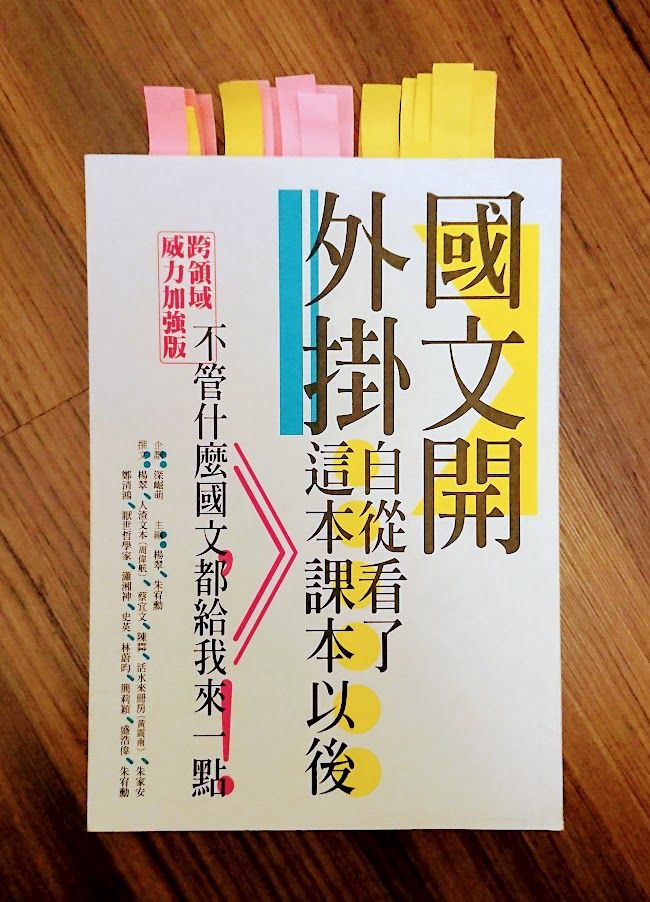
I don't know how you all spent your Chinese classes in the past? When I was in high school, I mostly used it as a supplement, and often there were math problems or physics and chemistry lectures hidden behind the Chinese textbooks. Teachers also mostly open one eye and close the other. After all, what can Chinese "do"?
Speaking of which, there has been a lot of controversy over the teaching of Mandarin Chinese. In addition to the contention over the proportion of classical Chinese in news pages, some people even think that Mandarin is useless and simply cut it off. No matter what your thoughts on Chinese are, I highly recommend reading this book "Chinese Language", and let's reconsider whether there are more possibilities for "Chinese lessons".
- The Department of Medicine and Dentistry is marginalized by the national culture
- The National Taiwan University Student Union proposes to abolish the "compulsory study of Chinese as a freshman", but there is still a debate over "writing class vs. literature class"
This book is a donated book for me to participate in the Kiwi Edition Chinese textbook fund-raising project . It is planned by "Deep Digging Alliance", edited by Yang Cui and Zhu Youxun, and invites people from all walks of life to talk about those familiar but unfamiliar from different angles. "Texts".
As Yang Cui said, Chinese textbooks have almost become synonymous with confinement, cramming, and boredom. In vain, he taught the form, sound, meaning, succession and transformation, making the Chinese textbook a desolate and evil land for breeding sleepy worms. And this book is about exploring new possibilities.
It is not a textbook, nor does it question the value of the existence of "Chinese textbooks". On the contrary, "Deep Digging Alliance" wants to invite everyone to think about the various possibilities of "Chinese textbooks" together.
- Yang Cui
The book is divided into two parts: "Careful Reading" and "Curning Reading" . Careful reading will start from the perspective of literature, deeply explore the texture of the text, carefully read what the work says, and how to say it; crooked reading will open up a new life in literature from the unique perspectives of various authors.
Reading is inherently diverse, and works will always meet all kinds of people, which will arouse echoes from different angles. This is the normal state of civil society today.
- Joo Yoo Hoon
Let me choose 3 articles to share with you, and finally talk about my imagination of Chinese class.
[Long Ganxing: A man's fantasy pure love? 】
Poems of boudoir grievances are a common type of ancient poetry. In the past, there were not many female poets. Of course, most of these boudoir grudge works were written by men, such as the familiar long-term work. Therefore, the book puts forward an interesting thought: Are the grudges written by men really boudoir grudges?
In the ancient times, there was a tradition of "relying on things", false boudoir grievances were really expressed, such as Bai Juyi's phrase "the same is the end of the world." However, Li Bai was young when he wrote this poem, and he has not yet suffered setbacks on the political road, so this poem may really be writing about the grievances of business women.
Why is the business woman complaining? In the Tang Dynasty, commerce was prosperous, and merchants often had wives and concubines in groups. How to survive in the family and fight for love has become a problem for women in this era. If the husband is not by his side when his face is at his best, and he can only "sit and worry about the old man", how can he not complain?
At first glance reasonable. But one thing worth thinking about is the "absence of men". In the poem, we can't figure out what the "husband" looks like. This romantic story is only based on a woman's pure love for her husband. Could this poem convey just Li Bai's romantic fantasy about a "woman who loves her husband deeply"?
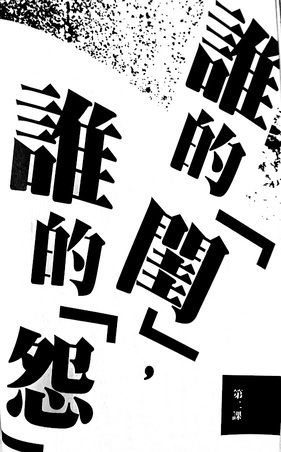
[Preface to the General History of Taiwan: Strange Writings Praised by the Japanese Occupation and the Republic of China? 】
In this book, Huo Shui Lai Fang (Huang Zhennan), the author of "The Most Terrifying History of Taiwan in Taiwan History" was asked to analyze Lian Heng's "General History of Taiwan", and the sparks from the collision were quite exciting.
In fact, the book did not sell well when it was published. As Huang Zhennan said, are you willing to use one month's salary to buy a history of Taiwan that is stacked six centimeters? It was not until after the war that Lian Zhendong became popular because of his relationship with the "party-state and politicians", and Lian Heng was also praised as an anti-Japanese hero.
However, Huang Zhennan slapped his face with the first edition of "General History of Taiwan". He mentioned that at the beginning of the book there is an inscription by the Governor of Taiwan during the Japanese occupation period, and then there are three prefaces written by Japanese people. What does it look like in the Anti-Japanese God Book?
However, he also mentioned that Lian Heng is indeed a daredevil in the book. In addition to praising the political achievements of the Qing Dynasty, he also wrote about many heroes who fought against the Japanese. Interestingly, the Japanese actually made it published. Probably because I feel that Taiwan is mine, and it doesn't matter what I say.
In short, "General History of Taiwan" is published under the official Japanese license. As Huang Zhennan said, it may be good to say that this book has the heart of promoting local, cohesive and cultural, but it may be a little more extended to say that the anti-Japanese.
Of course, as Huang Zhennan said, even if the "General History of Taiwan" is full of errors, and some contents may even be fabricated, as "the first general history of Taiwan", Lian Heng's hard work is still respectable. It's a pity that when talking about this work now, most of them wear tinted glasses and it is difficult to have a serious discussion.
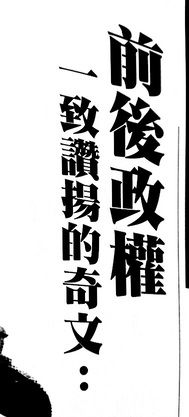
[Oil seller: Isn't it inspirational as you thought? 】
Finally, let's talk about the oil seller who everyone should be familiar with. The content is a story of an old man teaching a young man a lesson by pouring oil. But what's interesting is that there is a paragraph attached to the book:
What is the difference between this and what Zhuang Sheng said about the solution of the ox and the wheel? (This sentence has been deleted in many editions of the textbook)
Indeed, I really have no impression that I have read this paragraph before, so what is the mystery of these words?
As stated in the book, almost all textbooks in the past believe that this article emphasizes the importance of "practice makes perfect", and at the same time warns us not to be proud of our achievements. But is it really so? Let's look at a different interpretation.
The first is "hands-on". It is generally interpreted as hard training, and eventually something is achieved. But if this is the case, it would be a bit paradoxical for the old man to say "without him". After all, it would be too fake to say that such hard training is nothing. Therefore, the author believes that the so-called familiarity is more likely to refer to the state of casually touching it, and inadvertently practicing it over time.
From this book, a hypothesis is put forward. Ouyang Xiu is trying to use the old man to point out a truth that is not easy to explain: true skills are often the doorway that is discovered after a long time in the state of not asking for anything .
And the key to supporting this argument lies in the missing sentence: How is this different from what Zhuang Sheng called the man who solved the ox and the wheel?
Zhuangzi's interpretation of the ox emphasizes the so-called "following the trend"; Chuan Lun emphasizes that "the true way is difficult to describe". Both are directly related to Zhuangzi's concept of "naturalism", which may be Ouyang Xiu's true meaning. Maybe he just added this sentence at the end of the article because he was worried that future generations would interpret this article as a mature inspirational article. But I didn't expect it to be deleted...
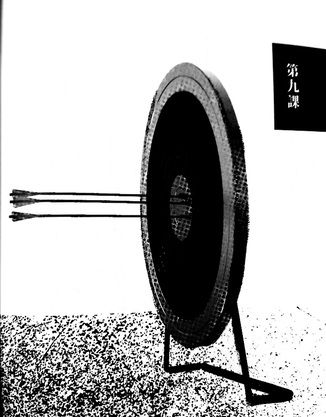
[Postscript: Chinese or not]
This book selects 13 texts that most of you and I are "familiar with", and finds new ways to play with each author's interpretation. In addition, at the end of each article, there are discussion questions and extended texts, which are interesting to read and more imaginative.
Finally, I would like to take this opportunity to talk about my views on the "Chinese Class".
[Problems in Chinese language teaching]
As mentioned at the beginning, I didn't take Chinese class seriously before. In addition, from childhood to adulthood, regardless of the academic test, the Chinese language was the culprit that caused my score to plummet, so I never liked it very much, and even felt a little tasteless. And when I went to university and found that Jiaotong University didn't have to study Chinese because it didn't have a liberal arts college, I was absolutely happy.
With a new understanding of the national language, it is time to serve in the alternative service.
Since I was serving as a substitute for Gege in the elementary school, there are Tang and Song poems posted in every corner of the campus, such as bulletin boards, wall pillars, and even on the top of the commode. At this time, I was surprised to find that the words used in these poems are so subtle. I can't help thinking: When I was reciting Tang poems silently before, I didn't feel any of this except pain.
In addition to the appreciation, there are also practical problems.
He was struck by lightning while serving and went to read Feng Youlan's "History of Chinese Philosophy". After reading it, I realized that I was so unfamiliar with texts other than Confucianism (such as Taoism and Mohism), and it was quite difficult to read.
This made me reflect on the differences I had learned so much before, but in the end I still struggled to read classical Chinese. Is this kind of teaching unsuccessful?
More importantly, I found that even if I put aside the meaning of the words, just in terms of the content, even the Confucianism that I thought I was familiar with was actually not an acquaintance. The various theories of Confucianism and the history of change are not clear.
And after reading it, I realized that the Confucian concept is not an iron plate. For example, the Han Dynasty only respected Confucianism, but in fact, Confucianism skinned the bones of Fajia, and integrated all the schools into it. Later, when Buddhism was introduced and the three schools of Confucianism, Buddhism and Taoism merged, the problem became more complicated.
However, these concepts were absent from my previous Chinese education.
Of course, this is not the fault of the Chinese teacher. After all, in a short class, it is really difficult to appreciate the text and lead students to think about these issues. And the above discussion is probably in the category of philosophy, but we have no philosophy class and have to let the Chinese class do it for us, which is naturally ineffective.
Chinese education is separated from literature education. The Chinese textbook is a variant of the Confucian Taoist grocery store. The goal of knowledge is Ziyue Mengyun, and the use of idioms is the supreme art of literary rhetoric. In such a wasteland filled with evil, teachers and scholars have worked hard, but it is difficult to grow beautiful flowers.
- Yang Cui
[Controversy over classical vernacular]
Let’s talk about the debate over the proportion of classical Chinese and vernacular. I feel that learning some ancient Chinese may still have some effect, at least when facing the text, it will not cause fear due to unfamiliarity. For me, learning ancient Chinese is a bit like the concept of learning a foreign language. After all, translating through the vernacular is like reading the text through a layer of film. Even if the translator's ability is good, it is still different from reading the original text.
However, in an article by John Lin, who was immersed in classic reading, he mentioned the difficulties of reading ancient texts. He pointed out that the ancient texts are difficult to read, and the school can't have time to teach them. From this perspective, it seems that the teaching of classical Chinese is really not so necessary, after all, we also enjoy the translation of books, right?

Even if you look at the writing technique without the content, I remember hearing Zhu Youxun say that if you just want to learn some literary concepts and writing techniques, you can achieve the same goal with vernacular texts. So is it really necessary to learn classical Chinese?
〔Value of Chinese Language Course〕
For me, the value of the Chinese class should still go back to the interpretation of the text. After all, text is everywhere in life. In this era of information explosion, fake news, and everyone's understanding of information is extremely focused, this ability is actually quite important.
If teachers and students can discuss the ideas and consciousness behind the text together, and discover different interpretation possibilities like this book, through this kind of training, everyone can discuss and find consensus when facing information in the future, will it be the national language? What value can lessons provide? But the current examination system should be difficult to be.
Of course, I'm far from my student days, and maybe it's different now, but not necessarily. If there is new information, welcome to discuss together!
I like what Yang Cui said, this book is actually an invitation, inviting everyone to turn over the bad land and wasteland together, what to do with the "Chinese textbook", and to think about the different "possibilities" of Chinese education.
Perhaps with imagination, the future is not far away.
Articles you may also be interested in:
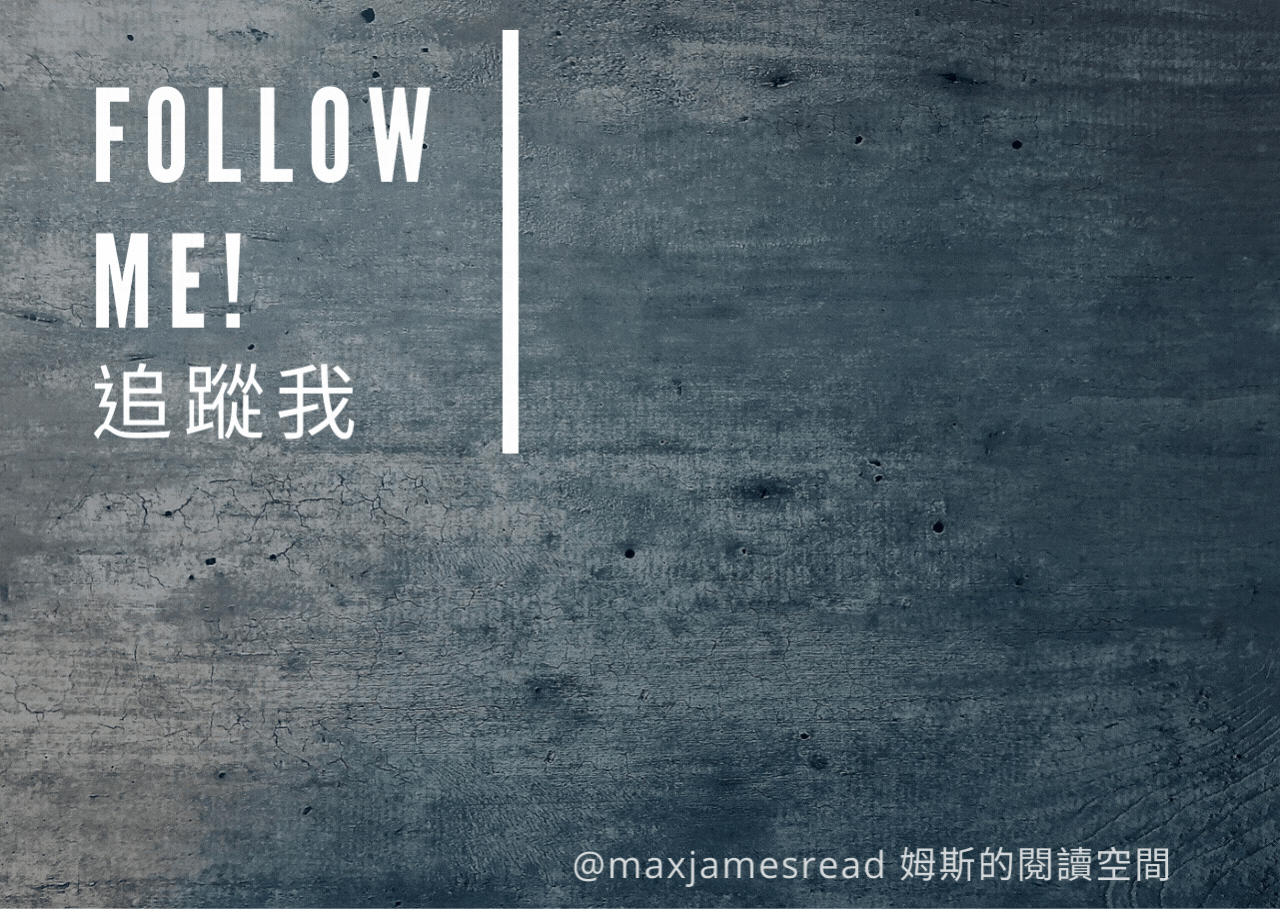
↓↓You are also welcome to follow the Facebook and mourning of "Mrs's Reading Space"↓↓
James' reading space FB
James' reading space IG
Like my work? Don't forget to support and clap, let me know that you are with me on the road of creation. Keep this enthusiasm together!


- Author
- More